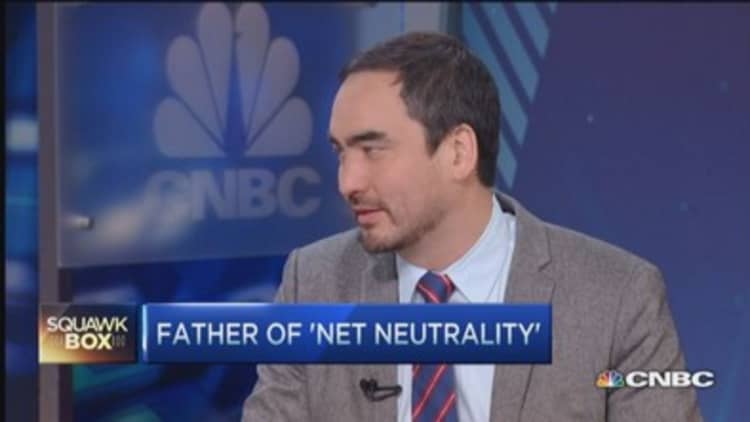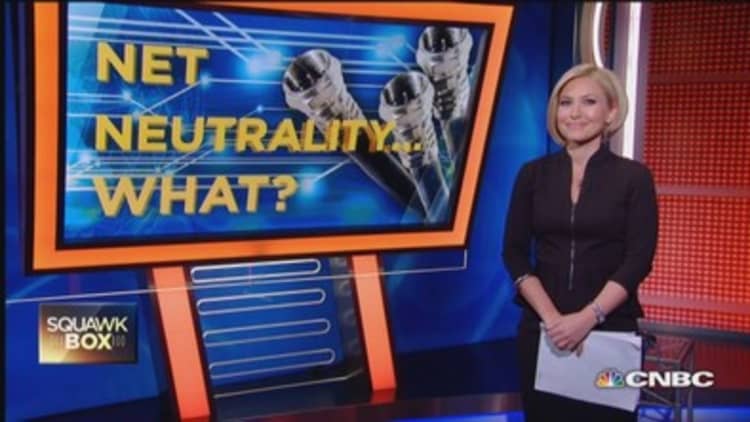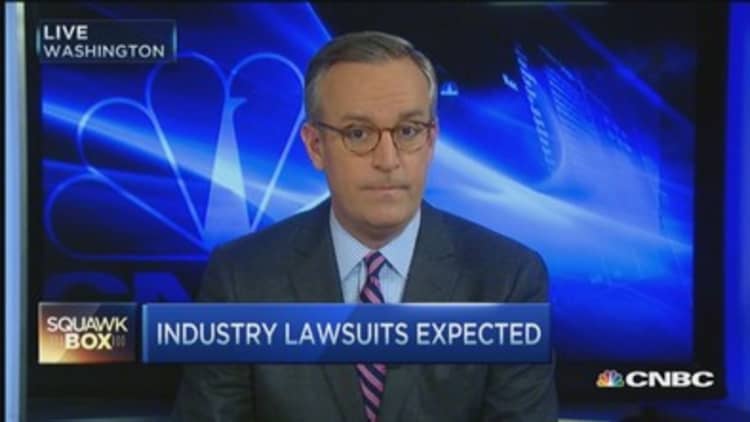
The man who coined the phrase "net neutrality" rejected the idea that enforcing the policy would lead to reduced investment in broadband infrastructure.
Tim Wu made his comments Thursday in an interview on CNBC's "Squawk Box" ahead of an expected landmark vote Federal Communications Commission approving the regulations.
"The industry just invested another $45 billion in spectrum knowing net neutrality rules were coming," Wu said. "They're just basic rules of the road. If you have rules for highways, it's not like people don't build buildings. I think we're going to see the same levels of investment going forward."
Wu, a professor at Columbia Law School, coined the term in a 2003 academic article. Net neutrality is the policy of treating all Internet traffic equally, rather than blocking or imposing "tolls" on access to higher grades of service.
The FCC is expected to vote Thursday morning in favor of enforcing net neutrality by classifying Internet service providers as utilities under Title II of the 1934 Communications Act.
Read More
That would give the agency the ability to regulate the providers like telephone line operators. Among other things, the FCC would be able to prevent providers from blocking legal websites, slowing down traffic to specific sites or allowing faster access to other services, such as Netflix or Amazon Instant Video.



The business model that net neutrality bans has never been a proven one for the cable industry, Wu said, noting that profit margins remain high at a time when net neutrality largely is in place.
Read More Tumblr CEO: Net neutrality rules like Bill of Rights
He asserted that creating slow and fast lanes can only drum up an incremental amount of revenue.
"On the margin there might be a tiny amount of revenue lost, but the main income just comes from the regular business model," he said.
Telecommunications companies fear that classifying Internet carriage under Title II could open the door for the government to regulate the price of service, though the FCC has said it will not enforce that provision.
"Anyone who thinks the government bureaucrats are going to take this big new regulatory power and not ultimately use it is really fooling themselves," Republican former Sen. John Sununu, honorary co-chair of telecommunications industry trade group Broadband for America, told CNBC on Wednesday,
Read MoreNet neutrality will slow investments: Sununu
Wu acknowledged that price controls would have a significant impact on the profitability of telecoms and cable companies such as Verizon and Comcast could affect investment. He said he is not in favor of regulating the price of Internet service.
Max Levchin, co-founder of online transactions company PayPal, told CNBC he errs on the side of free markets.
"The Internet is not broken, and it got here without government regulation and probably in part because of lack of government regulation," he told "Squawk Box."
However, he said it was not a bad thing to give government the tools to curb anticompetitive behavior. The broadband market could use at least one or two more large competitors, he added.
Disclosure: Comcast is the owner of NBCUniversal, the parent company of CNBC and CNBC.com.


